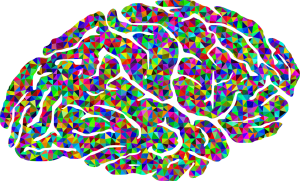Last year, there was new hope in the fight against Alzheimer’s disease when a new drug, Aduhelm, was approved for use to combat the disease. But now Medicare officials have announced their final decision to cover this drug only for people who receive it as participants in a clinical trial. This is good and bad news: while the drug won’t be as widely available, Medicare officials are considering cutting premiums for all beneficiaries, since the new drug was the reason for the $22 increase in Medicare’s Part B premiums this year.
The Price of Aduhelm
Aduhelm hit the market as the first new Alzheimer’s medication in nearly two decades, and many hoped it would be a breakthrough in fighting the disease. It was first priced at $56,000 a year, and was expected to generate billions for the company that developed it, Biogen. This astronomical price did eventually come down to $28,000 a year, but this price tag is still too high for Medicare. 
The high price of Aduhelm has meant that:
- Doctors have been hesitant to prescribe it, given the lack of coverage and weak evidence that the drug slows the progression of Alzheimer’s.
- Insurance companies have blocked or restricted coverage.
- Medicare Part B premiums have gone up $22 a month, the largest increase ever.
The Future Of Aduhelm
After all the concerns from insurers, doctors, and advocacy groups, Medicare decided to restrict the new drug, and only allow coverage for it for people involved in clinical trials. Dr. Lee Fleisher, the chief medical officer at the Medicare agency, explained this decision by saying that this way of dealing with the fast-developing field of Alzheimer’s therapies, a program called Coverage with Evidence Development, “is meant to be nimble and really respond to any new drugs in this class that are in the pipeline, and do demonstrate clinical benefit.”
But Medicare is also trying to make the trials accessible to more people: instead of requiring randomized controlled trials to be approved by C.M.S., Medicare will cover participants in any trial approved by the F.D.A. or the National Institutes of Health. This will allow the trials to be done in more locations, not just in hospital settings, and to include people with other neurological conditions like Down syndrome, many of whom develop Alzheimer’s but were not included in earlier trials.

In the trials, “the manufacturers will have to come to us with how are they going to include all patients that represent the Medicare population, and how are they going to ensure that all of these patients are getting appropriate medical treatment and monitoring of their treatment while they’re in each of these studies,” Tamara Syrek Jensen, the director of coverage and analysis for the Medicare agency’s Center for Clinical Standards and Quality, said in an interview.
Medicare Premiums
In the meantime, Medicare officials are in talks to hopefully lower Medicare Part B premiums now that they will not be covering Aduhelm for all Medicare beneficiaries, and now that the drug is coming down in price.
If you are one of the millions of Medicare beneficiaries who are living on a fixed income, saving as much money as possible is a top priority. The best way to save money on healthcare is to find an affordable Medicare Supplement Plan – and the best way to do that? Speak to an EZ agent! We work with the top-rated insurance companies in the nation and can help find a plan that will save you money this year – maybe even hundreds of dollars. Let our agents take the stress off you by comparing plans and finding ways to help you save money. And because we want to help you save as much money as possible, our services are completely free- no-obligation or hassle. To get free instant quotes for plans that cover your current doctors, simply enter your zip code in the bar on the side, or to speak to a licensed agent, call 888-753-7207.














